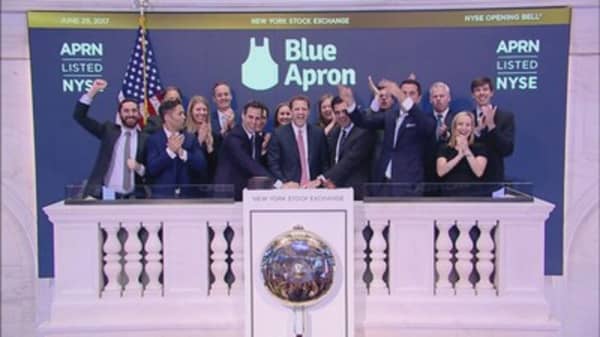Can a few hundred words really change culture? A momentum to do just that is building in tech — and it's happening in the most digital-first way possible.
Since I moved to San Francisco six months ago, ex-Uber employee Susan Fowler's now infamous blog post was published, which set off an earthquake in Silicon Valley. Since then, the world's largest private company was shaken right to the very top — leading to the resignation of CEO Travis Kalanick — and we've watched the unwinding of prominent VCs — including Chris Sacca and Dave McClure, among others — over allegations that they made unwanted sexual advances. (Sacca since said he was "sorry" and McClure admitted in a post he was "a creep.")
More stories will undoubtedly come forth, and we will continue to be disgusted by the individual examples. But the problem is a broken culture that will require a collective effort to fix. Of course, sexism is palpable in almost every industry — especially at the intersection of media, tech and finance where I am an observer and a participant. But for an industry that prides itself as being a moral force and a leader in social change, we should hold Silicon Valley to a standard that forces meaningful change.
Here's a lot of what's wrong, and what needs to be done.
- The way that start-ups are funded, as well as the enormous pressure they're put under to grow quickly, means that there's no structure in place to prevent, or deal with, bad behavior.
To understand the dynamic, let's start with how this industry works. Entrepreneurs sacrifice everything in the hopes of having their vision become reality, and venture capitalists fund that dream in return for future profits. The dynamic of older, more powerful and mostly male investors helping young and sometimes naive founders doesn't always instill founders with great ethics.
Within the start-up world, the biggest asset — being small, nimble and fast-moving — is also its biggest liability — a lack of mature leadership and corporate governance. Companies are pushed to grow faster, but stay lean to preserve capital as the venture world gets more competitive and the start-up space gets more crowded. What's often lacking is the proper infrastructure and HR functions to support that rapid growth. This was revealed by the Holder report in Uber's case, and also detailed in Reid Hoffman's recent Linkedin post.
- Ignore what VCs, founders and CEOs say, and watch what they do.
Industrywide, just 7 percent of partners at top VC funds are women, according to Techcrunch. CEOs, founders and VCs may talk a good game about hiring more women. It's important to watch what they do, and keep the pressure on.
Take a look at the composition of venture capital firm Greylock's investing team (Where Hoffman is a partner) — there's just one female out of a team of 18. Benchmark hired its first ever female partner to the firm this year. Lightspeed Venture Partners, under fire for not doing enough while Justin Caldbeck was still at the firm, also has one female partner.
Even if sexism in the Valley is just a few "bad eggs," those bad eggs are often turning out to be prominent people. Caldbeck badly tarnished the reputation of his firm. Sacca's apology to the industry came off as disingenuous to many. As for McClure, his admission of behavior should be taken seriously and consequences for such behavior be realized. Leaders in Silicon Valley need to make sure that badly behaving prominent people don't escape the consequences of their actions.
- More efforts need to be made to encourage women to pursue careers in tech
Women are already fighting an uphill battle in venture capital. According to Pitchbook, just 359 female-led start-ups were funded, versus 5,839 male-led companies. That's under 6 percent of all VC-backed deals last year. The Harvard Business Review found that male and female founders are asked different questions when pitching to VCs. For male entrepreneurs it's about financial prospects and for females, it's about the risks in their projections.
Beyond the ranks of the boardroom, we also need to continue to help women enter the field of mathematics and engineering, and encourage them to learn how to code. Industry leaders including Sheryl Sandberg, Satya Nadella and Mary Barra — who all pledged to promote more STEM-focused education through initiatives like Code.org and LeanIn — are paving the way for future women to enter the field. These proposals will help with funding in these important initiatives. Let's make sure these are translated into the classroom.
Venture capital also needs to continue to encourage more women to go into business — and many schools have put such initiatives front and center. More of my female friends want to become entrepreneurs and VCs via the route of business school or engineering schools because they are inspired to build. We need to make sure to elevate and celebrate them.
Finally, we need to also accept that culture cannot change overnight. We need persistence but we also need patience. Covering one person's bad behavior isn't likely to lead to change, but covering issues and actions can. Many venture capitalists have tweeted or blogged about the need for change lately. Let's hold them to their word. Can words really change culture? It's definitely a start.
As for me, I look forward to not only covering the positive parts of tech — which brought me to San Francisco in the first place — but also to shine the spotlight on the darker corners which have plagued the system for way too long.





